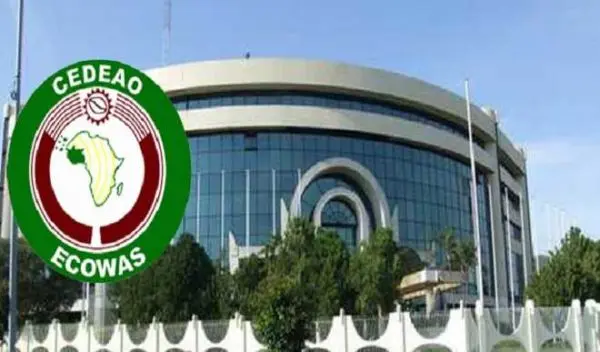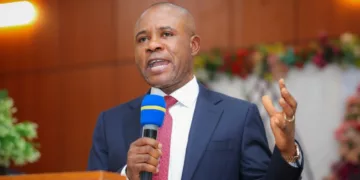The Economic Community of West African States (ECOWAS) and major stakeholders in disaster risk management have taken more significant steps to address the increasing humanitarian crises caused by natural disasters and other man-made disasters that affect over 9 million people in West Africa.
This was the focus of a three-day workshop to review the progress made on the Mid-term Consultation Meeting of the Regional Committee for Disaster Management in West Africa (GECEAO), which commenced in Abuja, the Nigerian capital, on Tuesday.
The consultation’s meeting is to work towards the implementation of recommendations and chart the path forward for 2023 GECEAO’s 15th Regional consultation in Niamey, Niger Republic, where it reinforced the capacities of the regional Focal Points in disaster management.
Mohammed Ibrahim, Head of the Humanitarian Affairs and Disaster Management Division of the ECOWAS Commission, said the meeting is to strengthen the commitment to enhancing regional disaster resilience and response to disasters.
He noted that GECEAO, established in 2009, has been pivotal in coordinating disaster management efforts, bringing together national agencies, regional organizations, NGOs, and international partners.
He said, “Our goal is to develop and implement a united strategy that builds community resilience to natural and man-made disasters.
“Specifically, this mid-term consultation will provide the platform for validating the draft regional recovery roadmap and resilience strategy developed by the ECOWAS Commission with technical support from the United Nations Development Programme (UNDP). These documents aim to mitigate the effects of disasters and ensure better regional disaster management.”
He stressed that the successful implementation of this mid-term disaster preparedness meeting and the validated regional recovery roadmap and resilience strategy will contribute to GECEAO’s goal of promoting better coordination and harmonization of disaster management efforts in West Africa.
“In West Africa and the Sahel region, the magnitude of vulnerability and exposure to hazards and losses from disasters is expected to continue increasing over the next decade. Countries are particularly vulnerable to sudden onset events such as floods, alongside ongoing issues like land degradation, water scarcity, and coastal erosion, which have increased in occurrence and severity due to the adverse effects of climate change.
“Conflicts remain a primary driver of displacement, but climate change has significantly impacted migration decisions across West Africa over the last few decades. The overlap of conflict and climate disasters underscores the urgent need for comprehensive and coordinated responses to break the cycle of climate change and armed conflicts and to increase humanitarian access and funding that supports resilience and adaptation to climate change,” he said.
In recent times, humanitarian actors have raised the alarm for the escalating humanitarian needs of nearly 9 million people in West Africa who are currently displaced due to increasing violence, insecurity, and extreme weather events. People have often become displaced multiple times, exacerbating their hardships.
Director General of Nigeria’s National Emergency Management Agency (NEMA), Mrs. Zubaida Umar, said the workshop will focus on generating outcomes to strengthen disaster risk management in our sub-region.
Represented by Dr Obot Daniel, Director of Disaster Risk Management Reduction, the NEMA boss noted that the subregion was confronted with diverse disasters, some of which were transboundary in nature and required collective efforts with enhanced coordination to address them.
“It is also compelling to tailor an emergency response that will guarantee resilience building and sustainable development as none of the phases of the disaster management cycle exists on its own without an overlapping loop,” she said.
Deputy Director Climate Change Department of the National Disaster Management Organization of Ghana (NADMO) Frank Kwesi Nansam-Aggrey, in his remarks, emphasized the need for governmental institutions of member states and relevant stakeholders working to achieve disaster risk reduction in the sub-region to focus more on information sharing to understand disaster risks and its governance and ensuring coordination across in-country institutions and sectors as urged by the Sendai Framework.
He said, “Time has come for us to begin to examine the West Africa regional preparedness against extreme disasters such as floods, fires, and other disasters that cause total havoc to human existence.
“Generally, disaster occurrences occasioned by natural and man-made hazard events have increased in the past three decades, causing a lot of distress to over 75% of West Africa’s population. “











